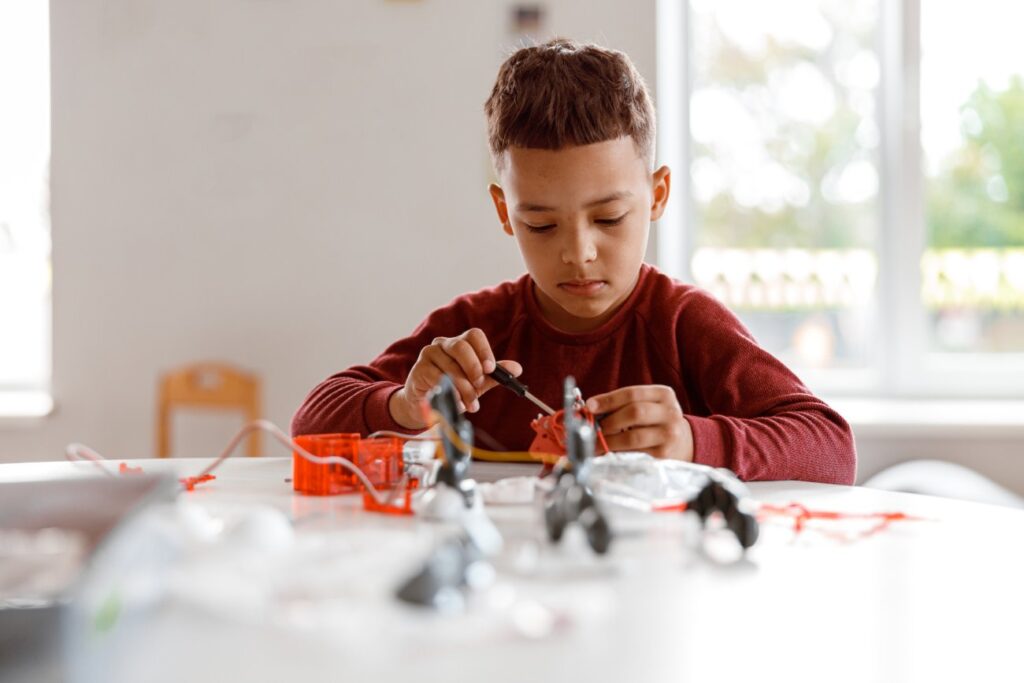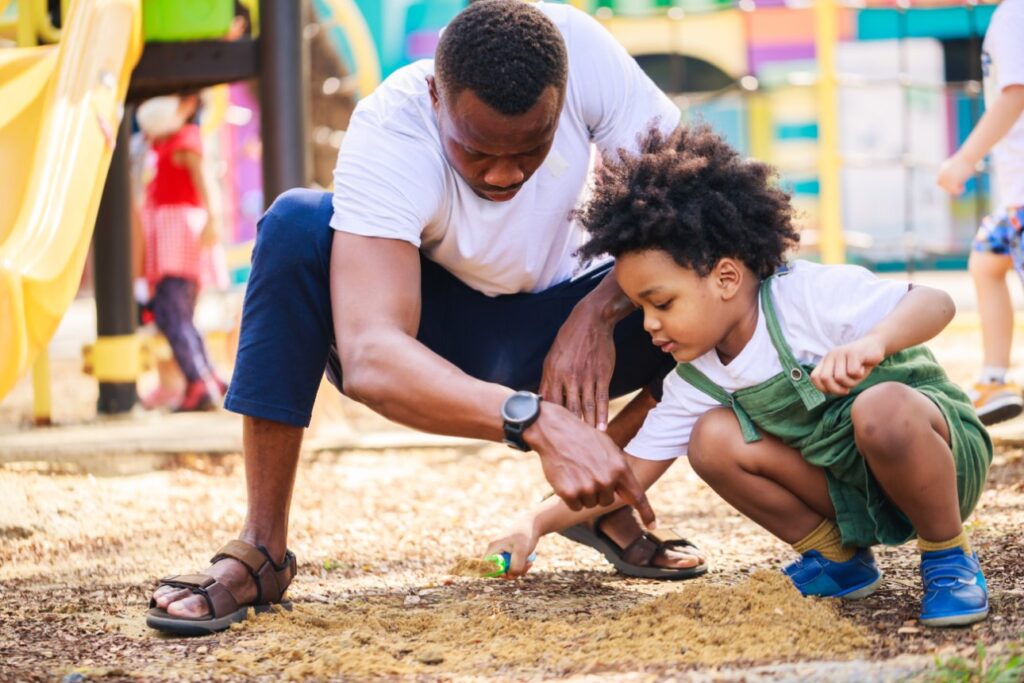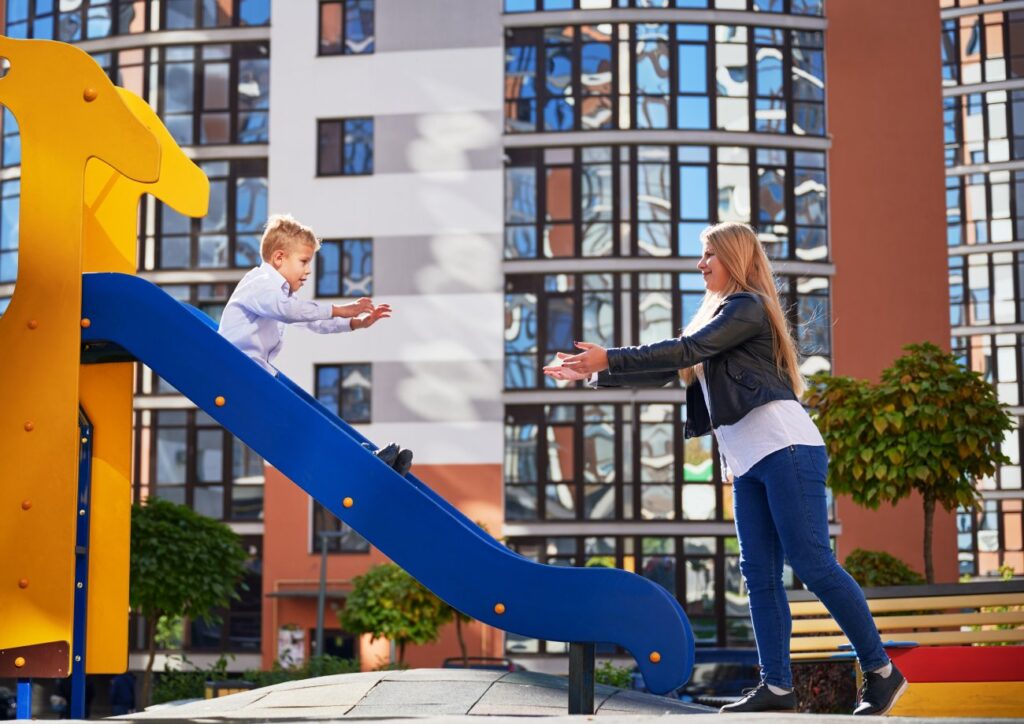When we think about our children’s future, we want to imagine them happy, exhausting their abilities in school, work, and life, earning a decent living, and succeeding in all their endeavors – we want to ensure the realization of potential in our children.
Such a life, a life of realizing the potential in children, is a life that requires self-awareness, complex decision-making, and dealing with challenges:
What is important to me? What do I want to learn? What do I want my relationship to look like? How do I get the dream job? How will I respond when I’m not meeting my expectations? How will I react when I get harmed? How will I rise from failure?
Happy and successful adults who realize their potential do not grow out of anything. These adults have recognized their potential as children, and now they know how to deal with various problems, difficulties, and goal setting in life. As children, those adults learn to recognize their strengths and act on them, ask themselves the right questions, find out what they want, and most importantly – deal with difficulty and frustration until they have achieved what they want.
Our job as parents is to guide and teach them these life skills, connect them to their desires and dreams, identify the unique tools at their disposal and prepare them to face the challenges well along the way. Proper and involved parental guidance in the children’s lives will ensure them a full life!
So how do you do that? How do you raise children who realize their potential?
Change in our conduct as parents is an in-depth process of personal development, in which we identify what motivates us as parents and learn to act out of awareness. Like any habit change, this process also requires daily training and practice to teach ourselves to focus on the essential things, to listen and respond in a new way. To get to know the basics of realizing the potential, I have compiled five main tools that will help you on the way to raising children who fulfill themselves:
This is the strength to realize your child’s potential
 Strength identification is one of the pillars of positive psychology – a branch of psychology that focuses on the study of happiness and prosperity. Strengths are the unique abilities that each person has. Focusing on their strengths and cultivating them enhances personal resilience and enables the realization of potential. Seemingly, it sounds simple, but our eye is drawn to what is missing – what needs to be improved, and the education we have received – complements our natural tendency.
Strength identification is one of the pillars of positive psychology – a branch of psychology that focuses on the study of happiness and prosperity. Strengths are the unique abilities that each person has. Focusing on their strengths and cultivating them enhances personal resilience and enables the realization of potential. Seemingly, it sounds simple, but our eye is drawn to what is missing – what needs to be improved, and the education we have received – complements our natural tendency.
As parents, we think our job is to spot weaknesses: difficulty in math, laziness or awkwardness, and to help our children fill in the blanks and improve their achievement.
Identifying strengths is the opposite: instead of looking for what needs improvement, we need to look for what is indicated and focus on it. Each of our children has different strengths, and sometimes we treat them as if they were taken for granted – a girl who knows how to say what she wants, a boy with a sense of humor that makes everyone laugh, a girl with a drawing talent, a boy with a developed imagination – all of these are strengths.
When we recognize our children’s strengths, praise them for them and help them develop them, they learn to recognize them for themselves and act on them in a way that radiates to all their doing, present and future.
Preliminary exercise to identify strengths:
Write 10 positive qualities or unique skills of each member of the household.
Yes, both of yourself and your spouse – Identifying your own strengths is an important step in educating your children to find their own
Your kids find their own.
Think positive
Positive thinking goes hand in hand with identifying strengths. It is the ability to recognize the positive in reality, the opportunities for growth even in times of crisis, and all that is good and beautiful in the world. Positive thinking is not innocent thinking. She does not ignore the difficulty and negative events, but tries to find the points of light and focus on them.

When sharing with kids the past day, do not just focus on the difficulties – the frustrating traffic jams, the annoying boss or the difficulty of juggling between work and home. Look for the little things that made your day: the delicious coffee, the smiling salesman in the mall or a surprising phone call, so you will also learn them to focus on the positive.
And you can also practice together: every evening everyone tells about something good that happened to them today, and if there is more than one – then it is fine.
Encourage them
Encouragement is one of the most important tools for developing a sense of competence that helps realize the potential, the question is what to encourage. According to the “for parenting” approach, attempts are encouraged as well as successes.
How will you react if your little one wants to give the dog a drink, and pours half of the water on the way?
You might say, “Look, all the water has spilled, now I have to wipe, let me do it, you’re too small.”
What will he learn from this? That he is small and incapable, that he has made a mistake that he himself cannot correct.
And you can also encourage: “Well done for noticing that Muki is thirsty – you are a responsible and considerate child, now bring a rag from the kitchen and wipe off the spilled water.”
What will he learn from this? That he is a responsible, considerate and independent child, who can correct himself mistakes that happened along the way.
Which approach will help him more to realize his potential?
Do not be afraid to frustrate them
Many of us think that our job as parents is to protect our children from the difficulties that reality presents to them. We soften the difficulties along the way, “fix their lives,” solve problems for them, at school or with friends, and do not let them deal with the consequences of bad choices they have made.
 What will happen in the future? Children who have not learned to deal with difficulties will encounter them in the future and did not know what to do. The toolbox they were given does not prepare them for difficult decisions or, God forbid, for failure. They do not know how to be frustrated and keep trying, and every difficulty lets go of their hands.
What will happen in the future? Children who have not learned to deal with difficulties will encounter them in the future and did not know what to do. The toolbox they were given does not prepare them for difficult decisions or, God forbid, for failure. They do not know how to be frustrated and keep trying, and every difficulty lets go of their hands.
So… frustrate them.
When trying to put together a Lego model do not rush to help, even if they are stamping their feet and have to try again and again.
When they are arguing with a friend, and it seems to them that the end of the world has come, let them find the solution for themselves.
When they need to submit an invested job in a school – do not “help” them and do in their place.
You can encourage, be empathetic and contain the difficulty, but hold on and do not offer a solution.
In this way you are actually helping them. Realizing potential in children ranges from the smallest things, the simple actions to the more complex tasks they will encounter during their lifetime.
Ask clarifying questions
As parents, we are confident that we know our children better than they know themselves. Is that really true? And if so – does it help them connect to their inner world? When our child tells us about a difficulty, or asks us a question – instead of telling him what we think, we should ask him what he thinks. How he feels about the difficulty and how he thinks it should be solved, what answer seems right to him. After asking the questions we will wait patiently. It may take the child a while to find the answers that are hidden within him, and at that moment he needs our patience and not our ability to answer in his place.
Sometimes we hear answers that will surprise us, but more importantly – our child will learn to listen to himself and this important lesson will accompany him all his life and help him know what he wants and realize the potential.
Realizing potential in children as well as in adults lies in the ability to listen to ourselves, connect to our desires, set goals and deal with the difficulties along the way. We want to instill these tools in our children right now, so that they can be used throughout their lives.



